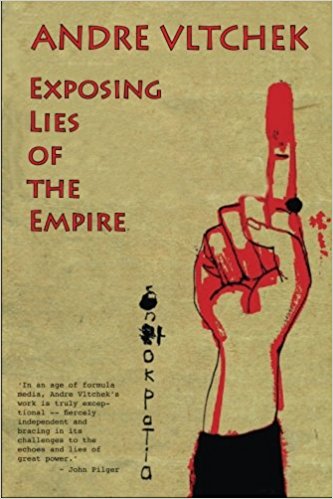This piece was reprinted by OpEd News with permission or license. It may not be reproduced in any form without permission or license from the source.
*
Just half a year ago, I witnessed great fiestas in El Alto. I filmed colorful processions, people dancing, fireworks. I admired the new public spaces, super-modern cable cars, public swimming pools as well as the playgrounds constructed for children.
Now, the city felt like a cemetery. It was eerie, silent, gloomy.
The enormous Mount Illimani, the symbol of this ancient land, was covered by snow. It was beautiful now, but it is always stunning, in good times as well as during the disasters. La Paz, sitting in a tremendous crater, was clearly visible from above.
"The Yankees coming," said Carlos. "You know, AÃ �ez has restored full diplomatic ties with Washington. And their spies and agents are flooding the embassy; all in civilian clothes, of course""
"With their backs covered by the treasonous Bolivian military," I uttered, sarcastically.
Carlos was quiet for some time. Then he decided to speak:
"When I was young, I was in the military myself. In Cochabamba, you know, during the water crises, and popular rebellion aimed at making water free. I never told you. Those were tough times. People stood up, and some died. Our unit consisted of mainly indigenous soldiers. The officers were white; almost all were. At one point, we let them know that we would not fire at our brothers and sisters. They shat their pants: captains, colonels; you should have seen them: they were running around, in barracks and outside, with no marks of their ranks. You know, at one point, if they were to have forced us to slaughter our people, we would have refused, and slaughtered them, instead."
"They were trained in the West?" I asked.
"Many, yes."
"And now Carlos? What about now?"
He began whispering, although no one seemed to be around:
Next Page 1 | 2 | 3 | 4 | 5 | 6 | 7 | 8 | 9 | 10
(Note: You can view every article as one long page if you sign up as an Advocate Member, or higher).






